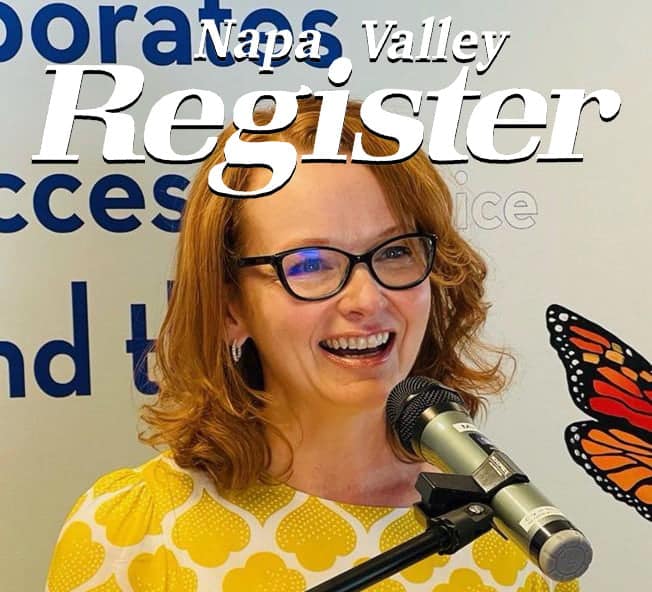Napa opens Monarch Justice Center for survivors of crimes

Local officials celebrated the grand opening Thursday of the Monarch Justice Center that seeks to serve survivors of elder abuse, sexual assault, sex trafficking, and intimate partner violence in an environment designed to mitigate trauma and encourage recovery.
The center, originally funded by a grant from the California Office of Emergency Services, is a collaborative effort between the District Attorney, local community-based service provider organizations, law enforcement, and adult protective services to develop a model for a Family Justice Center that would best serve vulnerable victims of crime in Napa County.
Monarch Justice Center creates a new centralized location where victims of crime can be better served by a team of multidisciplinary partners representing law enforcement, victim advocates, forensic interviewers, government and non-profit service providers, as well as district attorney staff.
Monarch Justice Center is located at the Aldea Children and Family Services’ building on First Street in downtown Napa, adjacent to the County’s Courage Center Program, a nationally accredited Child Advocacy Center serving child victims of crime and their family members.
Monarch is run by an executive board comprised of members of the District Attorney’s Office, Detective Bill Hernandez of the Napa Police Department, Kerry Ahearn Executive Director of Aldea Children and Family Services, Tracy Lamb of NEWS, Joe Cherry of Comprehensive Services for Older Adults and Katy Mendenhall, community member.
Congressman Mike Thompson attended the grand opening and congratulated the executive team for their commitment to a vision of better service provision – a commitment that has withstood a pandemic, fires, and years of relationship and trust-building.
“Monarch’s design is intentionally rooted in compassion and dignity for our community members,” District Attorney Allison Haley told a gathering of well-wishers, “It is designed to treat people well. We recognized that access to compassionate service was unequal, inequitable, and burdensome. We aimed to gently transform an overly complex and inconvenient system all while honoring the dignity of our community members.”

